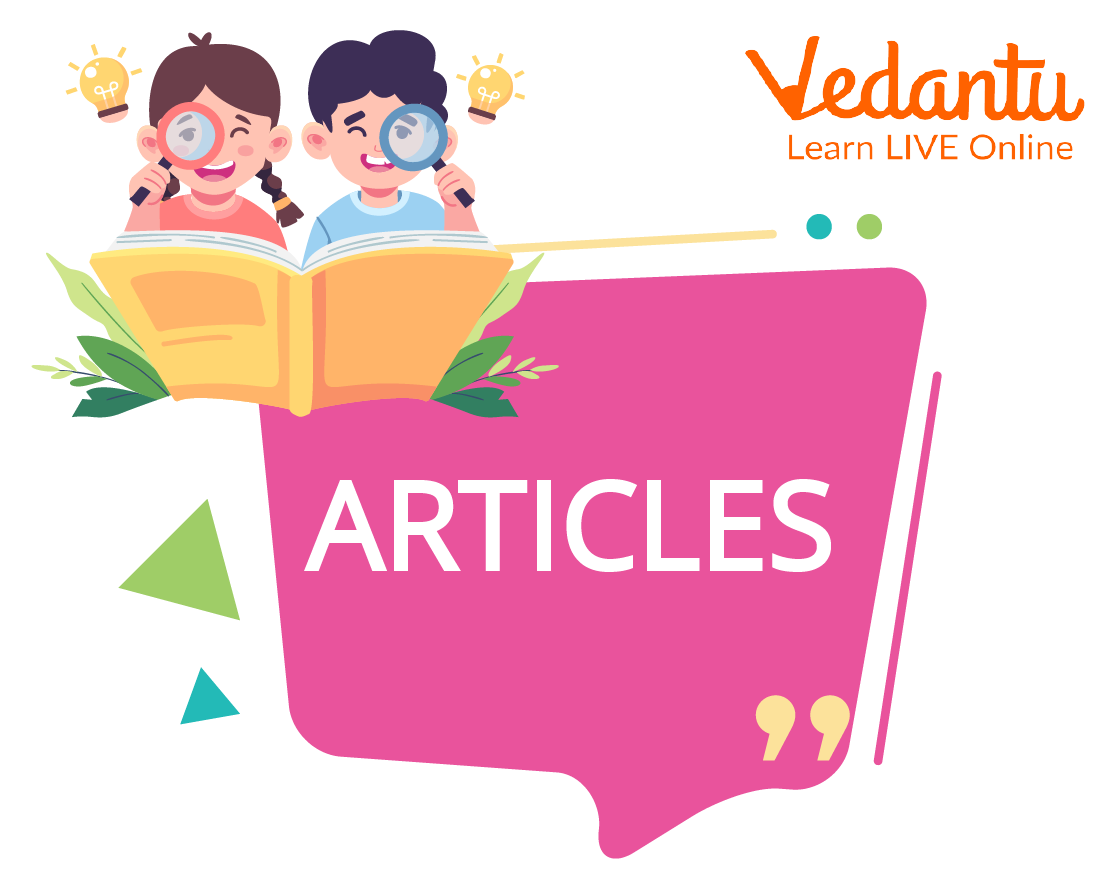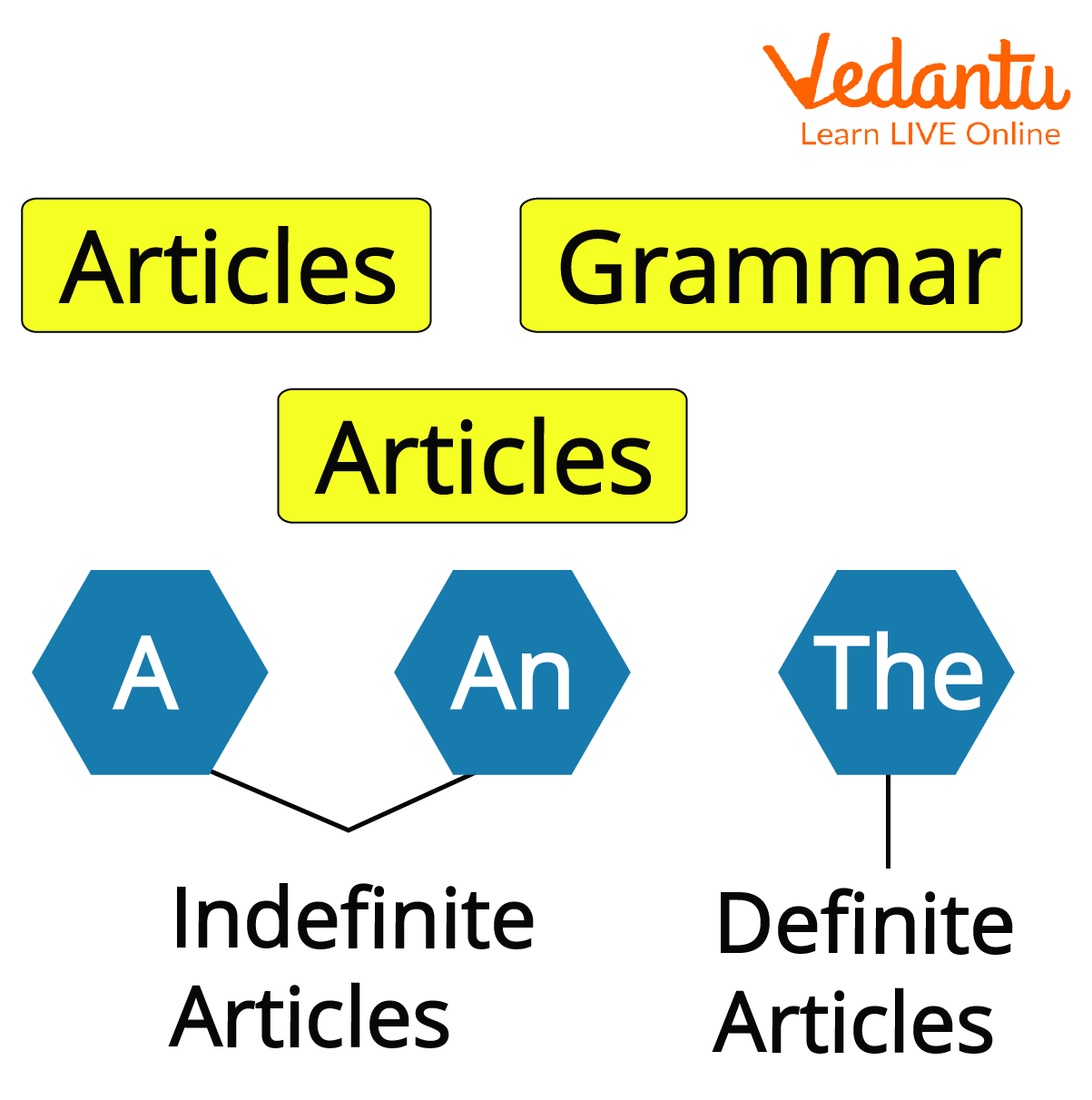Key Concepts and Exam Strategies for The Article in Class 8 English
FAQs on Comprehensive Guide to The Article in Class 8 English Grammar
1. What types of important questions on Articles can I expect in the CBSE Class 8 English exam for 2025-26?
For the 2025-26 session, you can expect questions on Articles to test your understanding in various formats. The most frequently asked types of questions include:
- Fill in the blanks: Using the correct article (a, an, the) in a given sentence.
- Error Correction: Identifying and correcting the incorrect use of an article in a sentence.
- Multiple Choice Questions (MCQs): Selecting the right article from a set of options.
- Sentence Transformation: Rewriting a sentence using the appropriate article as instructed.
These questions are designed to check your knowledge of definite articles, indefinite articles, and the omission of articles.
2. What are some important 'fill-in-the-blanks' questions for practice on the topic of Articles?
Practising frequently asked question patterns is key for your exam. Here are some examples focused on common rules:
- He is ______ honourable man. (Answer: an)
- I saw ______ one-eyed beggar on the street. (Answer: a)
- ______ Ganga is a holy river, but ______ Mount Everest is the highest peak. (Answer: The, no article)
- She bought ______ dozen bananas and gave me ______ orange from the basket. (Answer: a, an)
- Can you please pass me ______ salt? (Answer: the)
These examples test your knowledge of articles with silent letters, vowel sounds, unique objects, and specific nouns.
3. What are the key rules for using 'a', 'an', and 'the' that are most important for exams?
To score well, focus on these core rules:
- Use 'a' before singular, countable nouns that begin with a consonant sound (e.g., a boy, a university).
- Use 'an' before singular, countable nouns that begin with a vowel sound (e.g., an apple, an hour).
- Use 'the' for specific or previously mentioned nouns, unique objects (the sun, the Taj Mahal), superlatives (the best), and certain proper nouns like rivers and mountain ranges (the Nile, the Himalayas).
- Remember the concept of 'Zero Article', where no article is needed, such as with abstract nouns in a general sense (Honesty is the best policy), names of most countries, and names of individuals.
4. Why do some important questions use 'the' before mountain ranges like 'the Himalayas' but no article before individual peaks like 'Mount Everest'?
This is a crucial higher-order thinking (HOTS) concept often tested in exams. The rule is that the definite article 'the' is used before names of chains or ranges of mountains because they are seen as a collective group (e.g., the Alps, the Andes). However, no article is used before the names of single mountains or individual peaks (e.g., Mount Everest, K2) as they are treated as singular proper nouns, similar to a person's name.
5. How can I avoid common mistakes with articles when a word starts with a vowel letter but has a consonant sound?
This is a common trap in exams. The choice between 'a' and 'an' depends on the initial sound of the word, not the letter itself. To avoid errors, always say the word aloud.
- For words like 'university' or 'European', the initial sound is 'yoo' (a consonant sound), so we use 'a' (a university, a European).
- For words like 'hour' or 'honest', the 'h' is silent, and the initial sound is a vowel sound ('ow' or 'on'), so we use 'an' (an hour, an honest man).
Focusing on phonetics is the key strategy to master this and score marks.
6. Are there any important questions based on the 'Omission of Articles'?
Yes, questions on the 'Omission of Articles' (also known as the Zero Article) are very important and frequently appear in exams to test deeper understanding. Expect questions where you have to:
- Identify a sentence where an article has been used unnecessarily (e.g., "The honesty is a virtue.").
- Fill in a blank where no article is required, often marked with an 'x' or by leaving it blank.
Key areas for omission include: names of people, most countries and cities, languages, abstract nouns used in a general sense, and meals (e.g., 'He has breakfast at 8 a.m.').
7. How does the choice between 'a' and 'the' change the meaning of a sentence in an exam question?
Understanding this distinction is critical for answering context-based questions correctly. The choice of article signals whether you are talking about something general or specific.
- Indefinite Article ('a'/'an'): Refers to a non-specific, general item. For example, "I need a pen" means any pen will do.
- Definite Article ('the'): Refers to a particular, specific item that both the speaker and listener know about. For example, "I need the pen" means a specific pen that was probably mentioned earlier or is visible.
In exams, this can be the difference between a correct and incorrect answer, especially in error-spotting exercises.



























